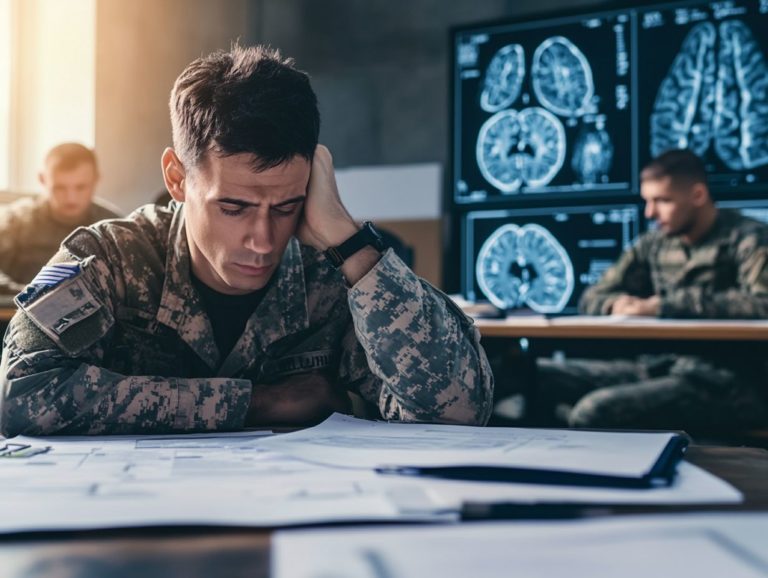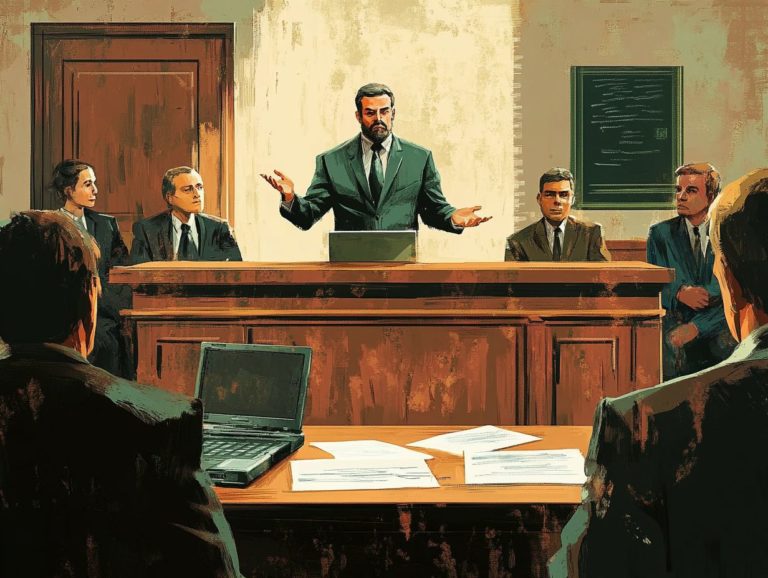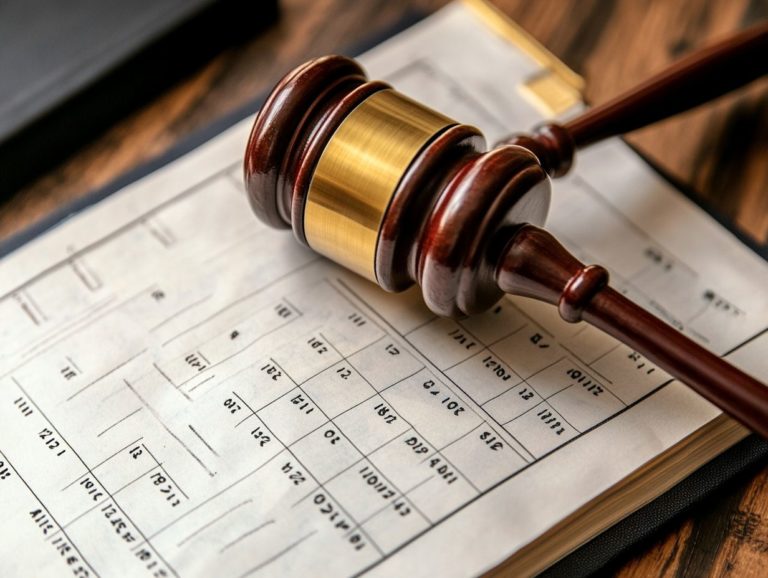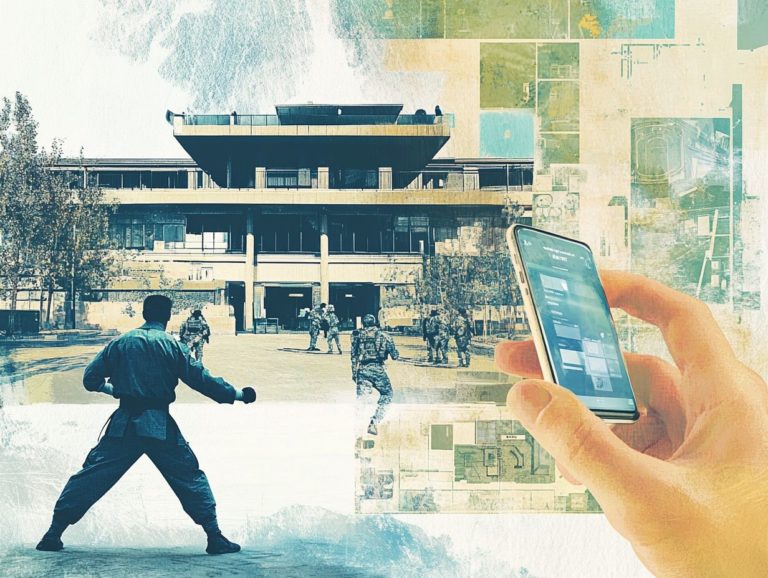Understanding the Elements of a Strong Defense
In today s unpredictable landscape, establishing a solid defense is essential for personal safety, business strategy, or cybersecurity. Let s explore what makes a defense truly strong!
This article highlights the significance of thorough preparation, effective communication, and strategic positioning. You ll assess potential threats, develop actionable plans, and uncover common pitfalls to avoid.
With practical insights and key takeaways at your disposal, you ll be well-equipped to fortify your defenses and respond adeptly in any situation. Take this chance to supercharge your defense strategies!
Contents
- Key Takeaways:
- The Importance of Preparation
- Elements of a Strong Defense
- Common Mistakes in Defense
- Frequently Asked Questions
- What are the key elements of a strong defense?
- Why is preparation important in building a strong defense?
- How does evidence play a role in a strong defense?
- Why is strategy important in building a strong defense?
- How Does Communication Impact a Strong Defense?
- Why Is Credibility Important in a Strong Defense?
Key Takeaways:
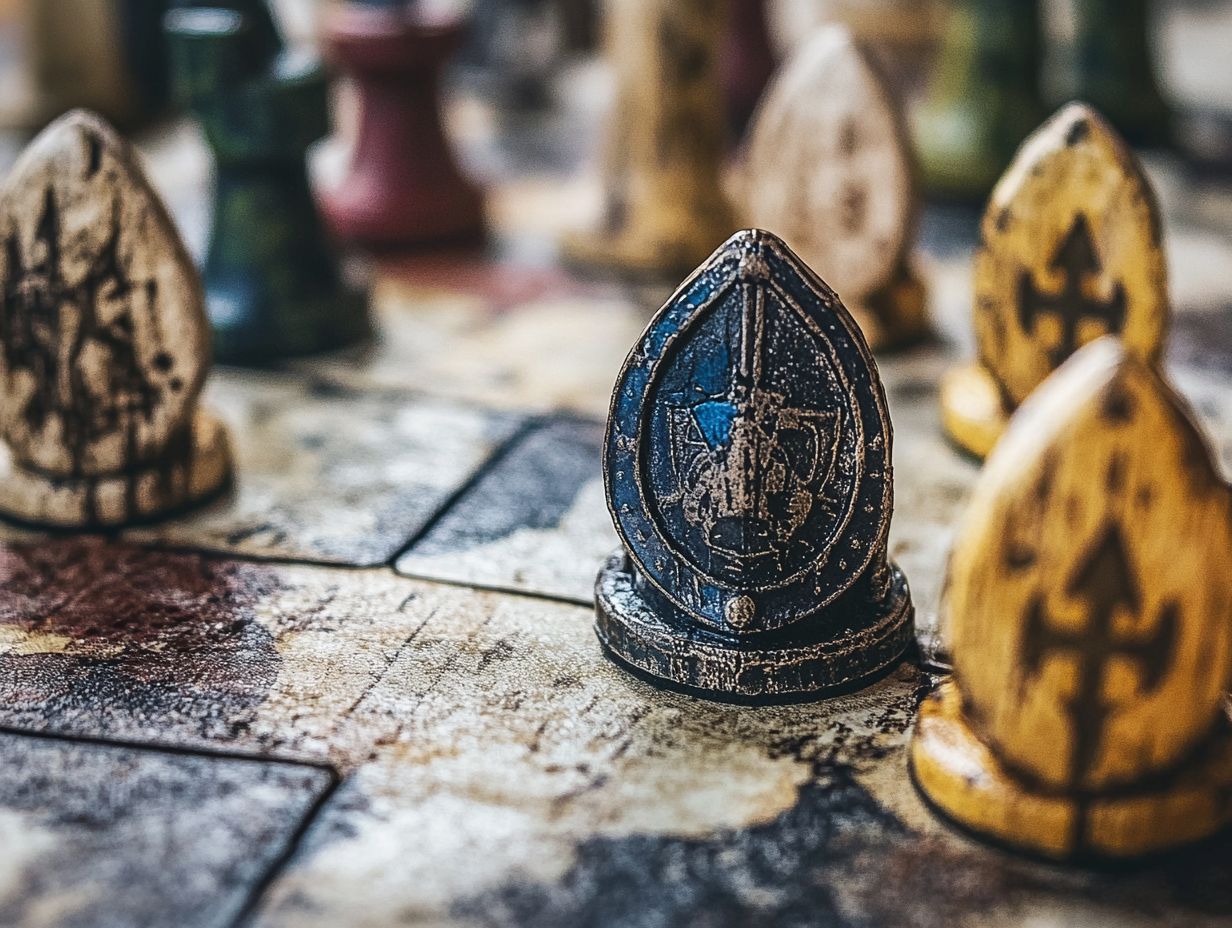
- Preparation is crucial for a strong defense.
- Evaluate potential threats and create an action plan to effectively protect yourself or your organization.
- Communicating effectively, positioning strategically, and thinking quickly are vital elements of a strong defense.
- Avoid common mistakes by being proactive, adaptable, and utilizing all available resources.
- Remember these key takeaways to create and maintain a robust defense.
What is a Strong Defense?
A strong defense in criminal law is your best ally, carefully crafted by a skilled defense attorney to secure the most favorable outcome. This strategy navigates the complexities of criminal charges while safeguarding your constitutional rights.
It involves a sophisticated blend of evidence collection, legal defenses, and open communication while constantly evaluating the prosecution’s case to create a foundation of reasonable doubt.
A proficient defense attorney gathers evidence that supports your position and dives deep into witness statements, examines police procedures, and identifies potential legal loopholes that could work in your favor.
A balanced approach combines offensive and defensive strategies, enhancing courtroom dynamics and allowing for a robust defense that effectively counters the prosecution’s claims.
Understanding your rights is paramount. This knowledge shapes the defense strategy and gives you confidence throughout the judicial process.
By prioritizing these critical elements, your defense attorney ensures you are treated fairly, reinforcing the fundamental principles of justice every step of the way.
The Importance of Preparation
Effective trial preparation is the cornerstone of a solid criminal defense. By engaging in meticulous preparation, you empower your defense attorney to develop a well-informed and strategic defense plan covering every angle of the case.
This includes thorough evidence evaluation and consideration of the emotional toll on you and your family. Prioritizing this preparation ensures that all legal processes and courtroom strategies are adhered to, laying the groundwork for a compelling defense.
Assessing Potential Threats
Assessing potential threats in a criminal case requires you to carefully review the prosecution’s case against the defendant. You ll want to scrutinize police investigations, evaluate witness testimony, and identify any flaws that could undermine the credibility of the evidence presented.
This thorough examination is crucial for shaping an effective defense strategy. Your process begins with an exhaustive review of police reports, where you ll search for inconsistencies or procedural errors that might hint at bias or negligence.
Witness testimony, often the backbone of any case, is carefully examined through a cross-examination strategy, revealing discrepancies that could influence a jury’s perception. Engaging expert witnesses, such as forensic specialists or psychological evaluators, adds another layer of insight and clarifies complex technical evidence.
Their analysis highlights weaknesses in the prosecution’s claims and strengthens your defense’s argument, ultimately leading to a more compelling and comprehensive defense strategy.
Creating a Plan of Action
A plan of action is vital in a criminal defense case. It helps establish a clear strategy based on unique circumstances.
Consider factors that could lessen the charges against your client. These elements can influence courtroom dynamics and impact the outcome.
Conduct a thorough case analysis to pinpoint what may humanize your client. This context can sway judges and juries alike.
Gather comprehensive evidence and interview witnesses; this forms the backbone of a successful defense.
Incorporating psychological assessments or expert testimonies can strengthen the case. These elements can highlight aspects of the defendant s background that might warrant leniency.
Each strategy should be customized to fit your client s situation. What works for one may not work for another.
This ensures the defense remains relevant and compelling, maximizing the chances of a favorable outcome.
Elements of a Strong Defense
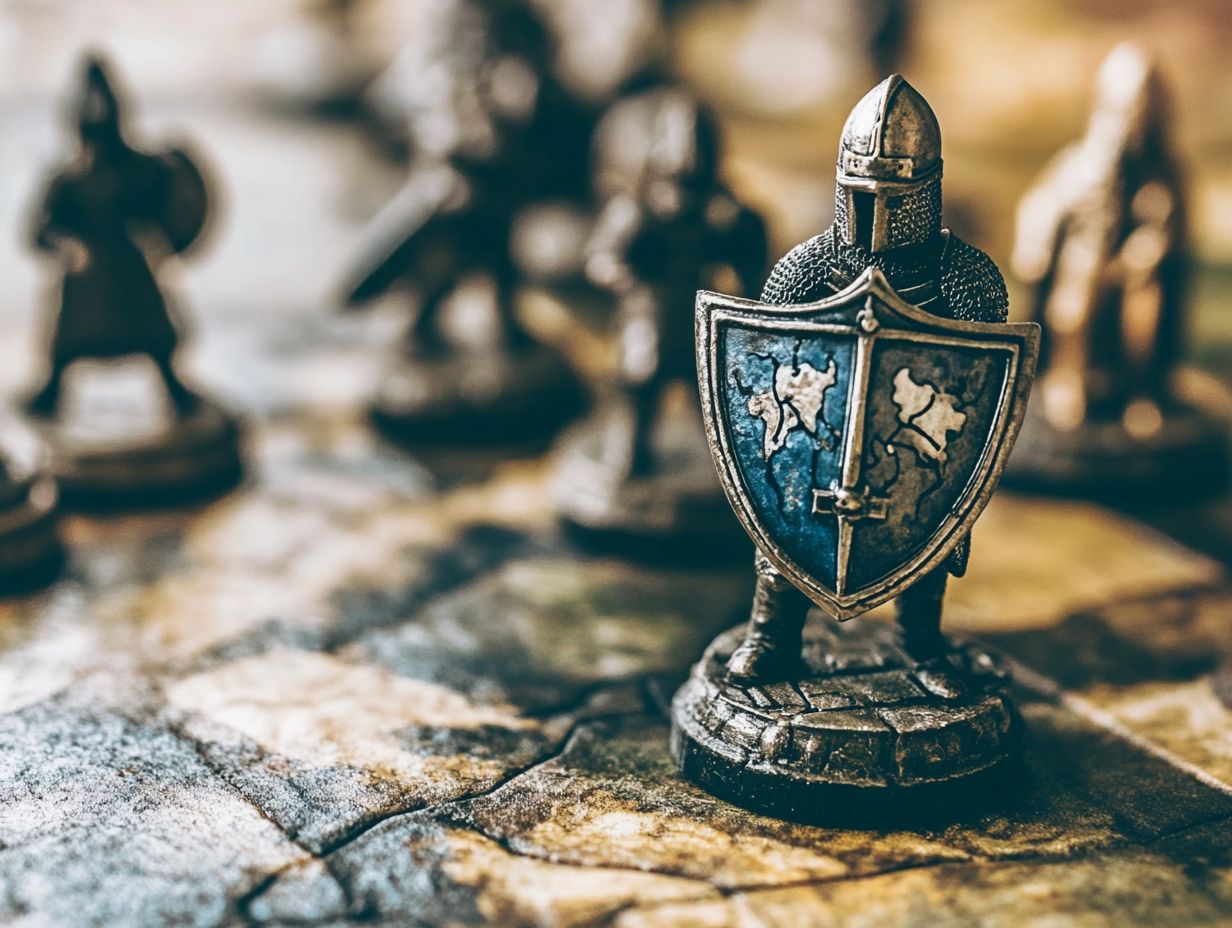
The elements of a robust defense include several vital components that come together to forge a compelling case. Effective communication between the defense attorney and you is crucial.
Understanding the defense arguments and providing emotional support is essential for navigating the challenges of criminal charges.
Each element plays a crucial role in ensuring that you are well-prepared and supported throughout the legal process.
Effective Communication
Your defense attorney is your strongest ally. Effective communication is essential for crafting a robust defense.
Your concerns must be acknowledged and treated with confidentiality, fostering a supportive environment throughout your legal journey.
The relationship with your defense counsel is vital for navigating the legal landscape. Transparency is paramount; when you feel comfortable discussing your fears, it gives your attorney the power to tailor strategies to your unique needs.
This open dialogue creates an atmosphere where guidance can flourish while safeguarding sensitive information.
Emotional support is equally important, as facing legal challenges can be daunting.
An attorney who listens actively and shows empathy can profoundly influence your mindset, building trust essential to fortify your defense.
Strategic Positioning
Strategic positioning in the courtroom is crucial. You must craft compelling defense arguments and influence jury selection to enhance your chances of a favorable outcome.
Navigating the courtroom dynamics requires awareness of potential jurors’ demographics and sentiments that might affect their impartiality.
This meticulous preparation involves analyzing each juror’s background and anticipating their reactions to evidence and testimonies.
By skillfully framing your arguments, you can evoke empathy or highlight reasonable doubt, profoundly swaying jury perceptions.
Mastering strategic negotiation grants you flexibility in presenting arguments, ultimately positioning your defense favorably against prosecution claims.
Quick Thinking and Adaptability
In the fast-paced courtroom environment, you must embody quick thinking and adaptability. Align your trial preparation with the changing dynamics of courtroom interactions.
Your ability to pivot in response to unexpected developments like surprise witness testimonies or new evidence is crucial for crafting effective legal strategies.
Recognize that emotions play a pivotal role, influencing how the jury perceives the case and how the defendant mentally navigates the situation.
Integrating emotional intelligence into your approach helps weave a narrative that resonates deeply, mitigating any negative impact on the case.
Ultimately, your capacity to react swiftly can be the deciding factor, potentially swaying outcomes and upholding the principles of justice.
Utilizing Resources
Utilizing available resources like expert witnesses and trial consultants is essential for crafting a robust defense strategy. These professionals enhance evidence evaluation and offer valuable insights on rehabilitation options for defendants.
Expert witnesses, in particular, simplify complex information and can dramatically impact the outcome of a case. They challenge the prosecution s claims while reinforcing the defense’s arguments.
Trial consultants play a key role in refining courtroom tactics, from jury selection to communication strategies. They analyze juror demographics to help you create compelling stories, increasing the chances of a favorable verdict.
Common Mistakes in Defense
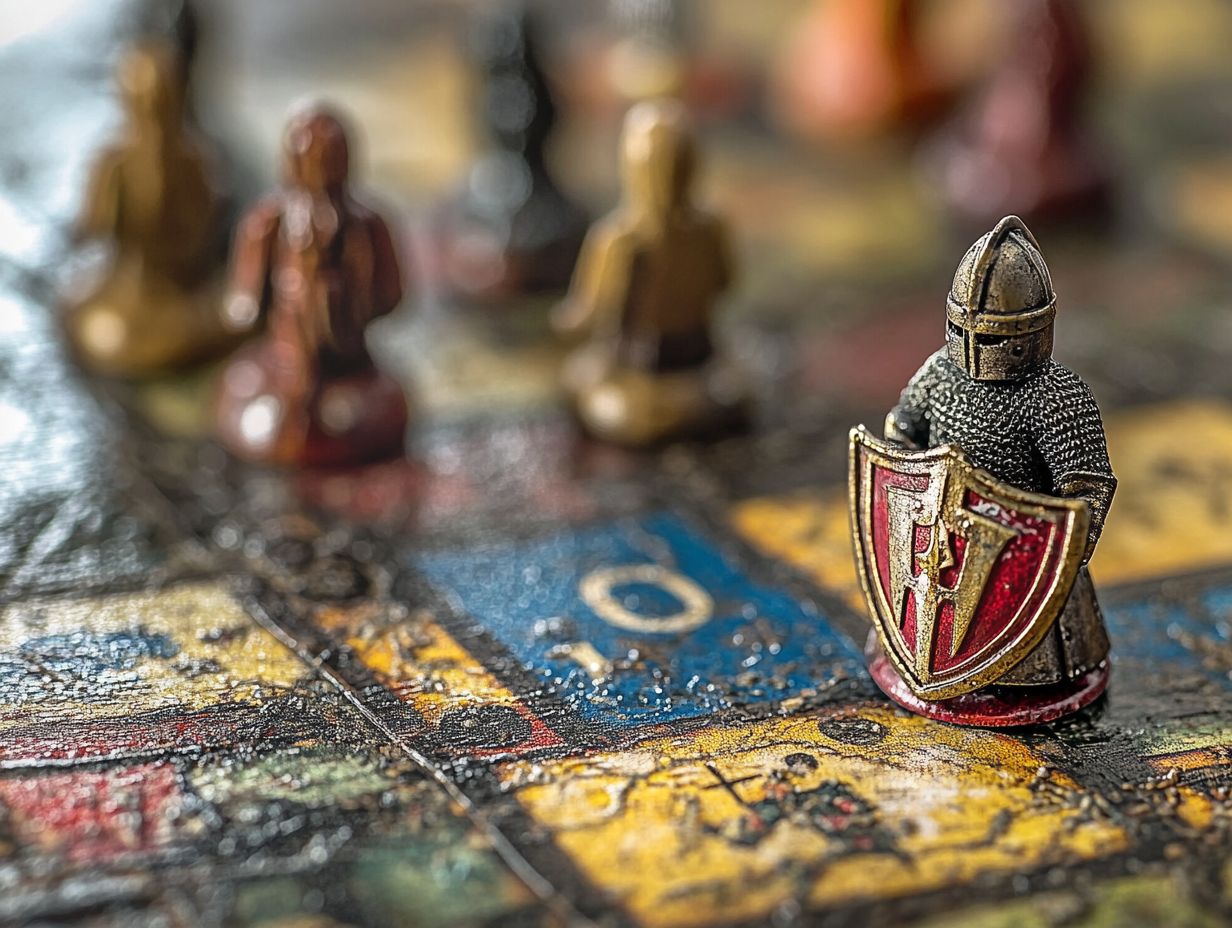
Common mistakes in criminal defense can greatly undermine your case. These mistakes often arise from inadequate evidence collection, miscalculations in defense strategy, and sometimes police misconduct that threatens the integrity of the prosecution’s case.
How to Avoid and Overcome Them
To deal with common problems in criminal defense, it’s crucial to employ effective strategies that leverage your defense attorney’s expertise and provide emotional support throughout your legal journey.
Understanding courtroom procedures can be a game changer. An experienced attorney knows when to object, how to present evidence compellingly, and the most effective ways to engage with the jury.
Participating in mock trials, which are practice court cases that help you prepare, can boost your confidence and enable you to articulate your thoughts effectively when it matters most.
Building a collaborative relationship with your attorney ensures that all legal decisions consider your personal strengths and vulnerabilities, resulting in a robust defense strategy tailored to your case.
Key Takeaways for Creating a Strong Defense
A strong defense hinges on key elements like structured arguments, emotional consideration of the defendant, and a well-rounded courtroom strategy that includes collaboration with dedicated defense counsel.
The effectiveness of your defense relies on how these elements work together. Clear articulation of your arguments lays the groundwork for persuading the jury, while sensitivity to emotional nuances can significantly shape their perceptions.
By employing diverse courtroom strategies such as engaging expert witnesses and leveraging compelling narratives you create a multifaceted approach that resonates with both the judge and jury. This interconnectedness is crucial, as emotional resonance can humanize the defendant, making your rational points more impactful.
Adopting a holistic perspective on defense preparation not only solidifies your legal standing but also cultivates a favorable atmosphere in the courtroom.
Frequently Asked Questions
What are the key elements of a strong defense?
The key elements of a strong defense are preparation, evidence, strategy, communication, credibility, and persistence.
Why is preparation important in building a strong defense?

Preparation allows the defense team to gather and review all evidence, identify potential weaknesses in the case, and develop a strong strategy to counter the prosecution’s arguments.
How does evidence play a role in a strong defense?
Evidence is crucial in proving the defendant’s innocence or creating reasonable doubt. It includes physical evidence, witness testimony, and expert opinions.
Why is strategy important in building a strong defense?
A well-thought-out strategy allows the defense team to anticipate the prosecution’s arguments and plan how to counter them effectively. It also helps present a cohesive and convincing defense.
Act now to avoid these common pitfalls!
Contact us today for a consultation!
How Does Communication Impact a Strong Defense?
Effective communication between the defense team and the defendant is crucial. It helps present the defendant’s story accurately and keeps them informed about the defense strategy.
Why Is Credibility Important in a Strong Defense?
Credibility is key to winning a case! It builds trust with the jury and can significantly influence the outcome. The defense team and the defendant must come across as honest and trustworthy.


